The system of seigniorage explained by Italy 1 Mystery in transmission.
2 days before this broadcast I mentioned the problem of seigniorage on live TV. As at other times for other.
In the transmission Mystery of Italy 1 of the 1 giugno si è a parlato del fatto che il denaro non esiste come “reserve”, non c’è oro nei forzieri, It is simply printed out and charged to the people, indebitandolo for a piece of paper that is not worth anything. Si dice che bankitalia non è la banca d’Italia, but a private bank. That “sell” the money to the state, che così si indebita e ci paga gli interessi, ie we come subservient.
Ci racconta che Auriti provò a creare una moneta del popolo e fu bloccato dalla guardia di finanza.
In overlay passes a written : the Supreme Court has recently stated that the seigniorage, deriving da “conventions”, non può essere messo in discussione dal giudice italiano.
So we start talking in the great network of the problem of seigniorage, ie the creation of money from nothing. I do it for years on this site, come lo fa l’amico Marco della Luna nel suo Euroschiavi.
Quello che ancora non si percepisce è che la “sale” del denaro dalle banche privata allo Stato è quello che ha creato il “public debt”, che in realtà è un falso in bilancio, remedied recently by Draghi and Berlusconi.
These are things that I reported in 2007 Rosanna in a broadcast Flavors. Tutto il mondo è governato dall’economia del dollaro, e la recente crisi è servita in realtà a “unify” under a single command printing of the US dollar and of’ Euro. Infatti anche l’Euro è stampato da una banca privata, reselling it to Member, dead with the Lisbon Treaty in force since 1 DECEMBER 2009.
Nessuno Stato UE può farci nulla , ma può invece farci qualcosa lo Stato Veneto, che non ha aderito all’Euro e non può per statuto.
Well that they speak on TV, but to explain these things to David Icke, conspiracy writer, that puts it all in the domain of the enlightened, cioé i Rotschield, according to him dating back to the Egyptian pharaohs, ed in realtà ALIENI, It seems debasing the content. E’ the so-called “debunking” to make the content controversial issue carried out by paranoid, quindi non più spendibile politicamente. In addition the whole was followed by a service human Vampires…….
It is worthwhile to see him.
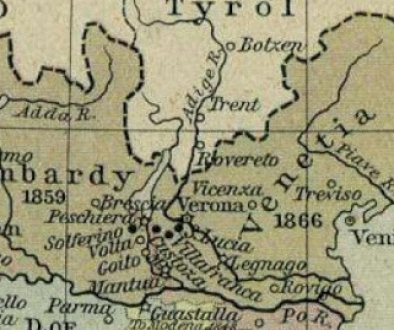

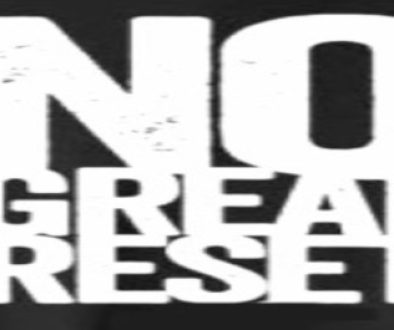
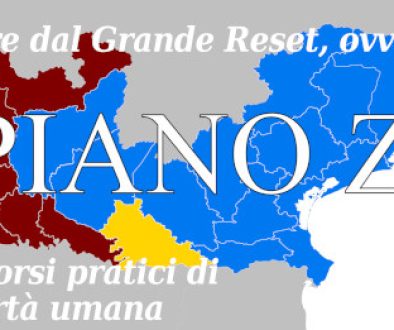
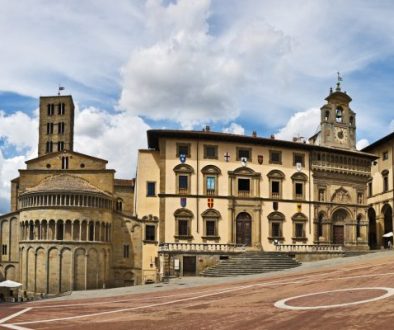
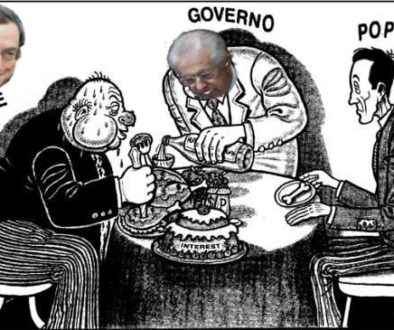
Hires
18 February 2011 @ 15:31
Bank of Italy is not private and is not run by individual.
E’ public and private in it do not matter and not get caught nothing seigniorage.
They get caught something from FRUITS reserves, it is quite another thing.
Ho spiegato bene l’argomento in a note
Francesco
27 October 2010 @ 00:54
Perchè la Banca d’Italia è una S.p.A. run by individual?
zyx
14 August 2010 @ 15:33
Bastaaaa public debt seigniorage is a hoax! Enough of this misinformation by two soldiers!
il signor Loris Palmerini dimostra di essere un idiota totale e di non sapere nulla dell’argomento in questione.
as J. Castellini, I will try to explain the whole thing is to clarify once and for all.
Sai cos’è lo Stato? The state behaves exactly like a large company. Coloro che lavorano nell’azienda sono vincolati ad essa tramite un contratto. The same is true for us citizens, we have a legal relationship with the state.
L’azienda ottiene il denaro in tre modi: through profits, asking for loans to banks and issuing bonds (also actions, But let's leave aside)
The state gets money through taxes instead, asking the IMF loans and issuing government bonds.
The public debt is owed to government bonds that the state gives off when taxes are insufficient to cover all state expenses (safety, sanità , education,etc) or large public works. Our debt has been created and is increased 4 phases:
1- per modernizzare il paese in seguito alle spese seguite all’unificazione
2- finance World War I.
3- finance the second war
4- the great works of the republic craxiana memory.
In particular, our abnormal public debt comes from the 4th point.
Everyone is asking: ma chi cazzo ce l’ha sto debito pubblico? I claim there is no seigniorage, We are charged to the credit of the city and then we could decide to make him disappear, or that someone should give those hypothetical 15.000 euros per person or so that we are entitled them. but is not so.
Who has the national debt? But it is obvious, are those who bought the bonds statati. This is not transcendental beings, shadow-banks, or crap like that: every national, company, bank, Nation etc can buy a government bond. AND, dear Jacopo, well as you or I!
And then you know how it works? It works that state bonds expire after a period (months, or years) and have an interest. ( x%). You you buy one from 100 € and after 365 the day you return and you find yourself 0,8 euros more. E’ un’inezia, In fact, you have to buy thousands to have a significant income.
However there gains. And you know where it comes from this gain? From the taxes that the state requires to finance its debt. Our debt requires an annual “X” tasso d’interesse che va ad alimentare quell’x% di tutti i titoli di stato. Basically a holder of a nationwide title vampirizes.
Non c’è alcun complotto di banche e poteri nascosti, anyone could do it. Even citizens, of course at the expense of those who are not in possession of bonds.
Obviously, the debt should be paid off after a while, but now in our case is too huge and impossible, at the cost of a cut in pensions or an increase of exorbitant taxes.
The solution for the state is therefore to issue more bonds to pay interest to creditors of the securities, but in so doing it feeds a vicious circle more and more swelling the debt and never reaching the head of the problem. E’ a kind of Ponzi scheme, che per altro non può continuare all’infinito.
Some argue that the state should emettre him the currency to repay the debt.
Well this is a colossal bullshit.
Simply because doing so would produce money for a total of about 2000 billion euros, facendo schizzare così l’inflazione alle stelle e ripagando i creditori di carta straccia. Usually the state banks are completely in the hands of the state in dictatorships (Korea, Cuba, African states) posono that emit at will banknotes. But a huge flood of money does not increase wealth, rather depreciates the value of money.
In this way, when before a loaf of bread it costs 1 €, now it costs 1000 € But your salary is unchanged. Quando il tuo stipendio viene aumentato a un milione di euro per adeguarsi all’inflazione, loaf worth 1000 times the price of first, ie your monthly salary. E’ a vicious circle.
The currency falls in value in the nation doing so splash the price of imported materials skyrocketing. Magari il debito pubblico sarà anche cancellato, però l’inflazione è la rovina dell’intera nazione.
A striking example is Zimbabwe, where, to settle the debt with the IMF, the dictatorship printed tons of paper, reaching cutting banknotes 10/20/50 trillions (you've got it right, 10/20/50.000.000.000.000) Zimbabwe dollars. Con la differenza che il debito con l’FMI non lo salderanno mai perchè è in dollari americani, then a currency different from that of Zimbabwe, while our debt is in euro, then in the same currency.
in conclusion, it makes no sense to pay such a coin that the IMF has no value. E’ as if I had a debt in Euros with a bank, and they wrote on pieces of paper “1000”, a million or a billion to repay.
So you understand? the debt is not contracted with himself (ma chi cazzo l’ha detto questo), but with the creditors of government bonds (who continue to vampire nation).
In addition to “genialata” printing paper, as you can still cancel the debt? Obviously there must be another way that it charged (or did bugger) few and not all: This is the so-called default or bankruptcy. The trick is simple: da un giorno all’altro, I, the high country's Prime Minister, I decide that government bonds are considered a value of 0.
And then you, jacopo, that the day before you decided to buy bonds for a total of 10.000 euri, the next day you feel to say on television that are not worth a shit and you feel a bit taken for a ride.
E’ exactly what happened in Argentina, coi bond argentini: investors who had bought them (duped by banks) gathered toilet paper in his hands. Easy trick am, ma non c’è qualcosa si sbagliato?
Well, in fact it is a SCAM. l’argentina è stata portata dinanzi alla corte internazionale ed è estromessa dalla finanza mondiale.
The Italians who had bought bonds for a total of 4.4 billion Euros are sure that will never see the money.
Exactly what it happened to parlamat, which came close to bankruptcy falsifying accounts (frode), cosicchè coloro che possedevano le obbligazioni dell’azienda se le sono viste crollare di valore ai livelli molto più bassi del valore iniziale. The decree, however, saves businesses has saved your ass at the expense of us taxpayers.
And the same thing was happening to Greece. In this case, however, it was replaced by the SAVE-NATIONS Decree, to which all member states have had to pay to keep afloat the dying Greek economy, He went into meltdown for a series of short-sighted choices of incompetent politicians. If anything had gone bankrupt, even then Greek bonds would magically acquired value = 0.
The greek state, per ottenere liquidità , issued other government bonds, which were readily bought by the ECB.
This involves a few things: The ECB may cancel the debt of these bonds by printing money, come ho detto sopra seguendo l’esempio dello zimbawe (not in an exaggerated way obviously), che però porterebbe ad un rialzo dell’inflazione (to the detriment of all), while declaring default, the damage would have been contained to a few people (the bond creditors) but more impressive.
Non c’è alcun complotto internazionale, just ask.
I got it? l’inflazione spalma il danno, il default no. I honestly believe that the default is better. Why would they pay for all citizens? Why do we continue to pay I'm fucking in public debt interest for sharp operators tricking you are enriching with the interests of government bonds?
Fondamentalmente i titoli di stato sono una truffa che si autoalimenta con il tasso d’interesse. a kind of Ponzi scheme: quando i proventi dalle tasse non saranno più sufficienti per pagare l’interesse (that is around 60/70 miliardi l’anno), allora l’italia farà il botto.
L’altra via è quella di dichiarare bancarotta: ossia usare una truffa per combattere un’altra truffa, with the difference that a is legalized, l’altra no. (but the initial scam that is the worst, ovvero l’emissione di titoli di stato)
Quindi l’italia può, For example, fare lo stesso scherzetto dell’Argentina dichiarando il debito pubblico nullo (but seigniorage), solo che mentre l’argentina l’aveva di 150 billions of dollars, noi l’abbiamo di quasi 2000 billion euros. Vista l’impossibilità di mettere in carcere una nazione, com’è successo invece a Tanzi, we could peck sanctions or an embargo methane gas from Russia (which I think has a lot of our titles), who knows. But at least we as citizens we will be raised from taxes, and the money, che prima andavano a ripagare l’interesse, COULD be invested in research or something.
Ed è per questo che l’italia preferisce continuare a pagare questo interesse (even if it is only postponing a bang): to avoid antagonizing those who are its creditors (believe me, I'm really MANY) scattered for the world, including many of its citizens and businesses.
Not the fault of the banks if there are reduced to ask for money by issuing securities, but rather it is the fault of our politicians who demanded money in works which then had no return annuity or are simply lost in bribes, clientelismi, etc
As for the local tender currencies, These work just like any other currency, with the difference that they are restricted to a much narrower circle of people, therefore with advantage that goes directly to their, at the expense of non usufruitori coin (They explained it well in a report pointed).
Del resto è impossibile che una parte si arricchisca mentre l’altra non si impoverisca, va contro qualsiasi regola base dell’economia.
E’ come se tutto il mondo funzionasse in dollari americani mentre solo l’italia continuasse a usare la lira: a weak currency would promote our exports. The system does not change, only changes the point of view.
As for the bullshit “there's gold in the coffers” Oh my god so our banknotes are based on nothing!
Anche se ci fosse oro non cambierebbe una mazza perchè sia l’oro che le banconote hanno solamente un valore nominale, in realtà non servono a niente. E’ just a matter of “tradition” se l’oro è considerato avere valore o è utilizzato come riserva/bene di rifugio. You could use stones, such as wood like any other precious metal.
Magari in futuro il deuterio sarà un elemento importantissimo, rarissimo e preziosissimo per far funzionare le centrali a fusione nucleare e quindi sarà il prossimo bene rifugio. Vedo già criminali assaltare banche di deuterio e fuggire con cilindri criogenici da piazzare sul mercato nero.
L’oro è soggetto alle fluttuazioni di valore come il denaro quindi non ha alcun valore reale.
Indeed, se tu capitassi in un’isola deserta, preferiresti avere una tonnellata d’oro o viveri?
Del resto l’economia di finanza crea solo una ricchezza fittizia (interests, the value of shares, etc), un po come il gioco d’azzardo. While what really creates wealth are the products of labor and jobs.
Jacopo Castellini
18 June 2010 @ 19:09
Dear Paul,
I'd be curious to let me explain to you what is the public debt (perché lo stato s’indebita? if it is sovereign, he can not emit the currency? why would a government should take draconian measures to avoid bankruptcy, if the debt was just one contract with himself and not with an external debtor? che cos’è il “cost of borrowing” They often talk about the news, without ever stopping to explain what it is?);
because the local currencies to public issue work (including coins / discount coupons issued in Italy as SCEC, Your, etc) e creino ricchezza senza indebitare l’ente che le emette e addirittura garantendo ad esso entrate aggiuntive rispetto alle tasse;
Bank of Italy because it is a “società di diritto pubblico con capitali privati” (which it differs in fact from a S.P.A. only to the allocation of shares in the Board of Directors): all banks are “public bodies” and whether the capital they put them private, then it must by law protect profits, otherwise violate the law, therefore can not guarantee the control of the banks nor be superpartes. O no?
Moreover, dovresti spiegarmi perchè il Ministero dell’Economia e delle Finanze ricavi entrate dall’emissione di monete (initialed “Italian republic”) and not instead from banknotes (initialed ECB).
When (and especially SE) You are able to do that with your knowledge, without consulting various debunkers sites, then you (in case it brought more truthful arguments and adhering to the facts) to define “conspiracy” Who you currently know how to explain.
Moreover, FYI the first to make public the issue of seigniorage were Lincoln, Jefferson, Adams, Jackson (that rejecting the seigniorage mechanism in private hands throve their nation until they were allowed). If you know the story, I will be able to say that these gentlemen were forerunners of Nazism. Moreover, questo lo faceva anche l’Antico impero del Catai (at dinner) and with her the noble Venetian Republic…that were not the political models of Adolf Hitler.
On Mystery, condivido quanto scritto da Palmerini.
E le grasse risate -se permetti- me le faccio io, quando constato con grande stupore che ci sono persone ancora convinte “che cristo xe morto da fredo” 🙂 🙂 🙂
Jacopo Castellini
Paolo
7 June 2010 @ 00:08
Ciao, network runs on this dossier fibs seigniorage:
http://digilander.libero.it/togiga/signoraggio.pdf
e un gruppo facebook che debunkera le sciocchezze dei complottisti:
http://www.facebook.com/pages/Signoraggio-informazione-corretta/279217954594
la teoria del complotto del signoraggio è una bufala di stampo neonazista
http://signoraggisti.blogspot.com
Grasse risate: Mistero (Italy 1) sdogana la bufala del signoraggio
http://www.giornalettismo.com/archives/65842/mistero-italia1-signoraggio-bufala/